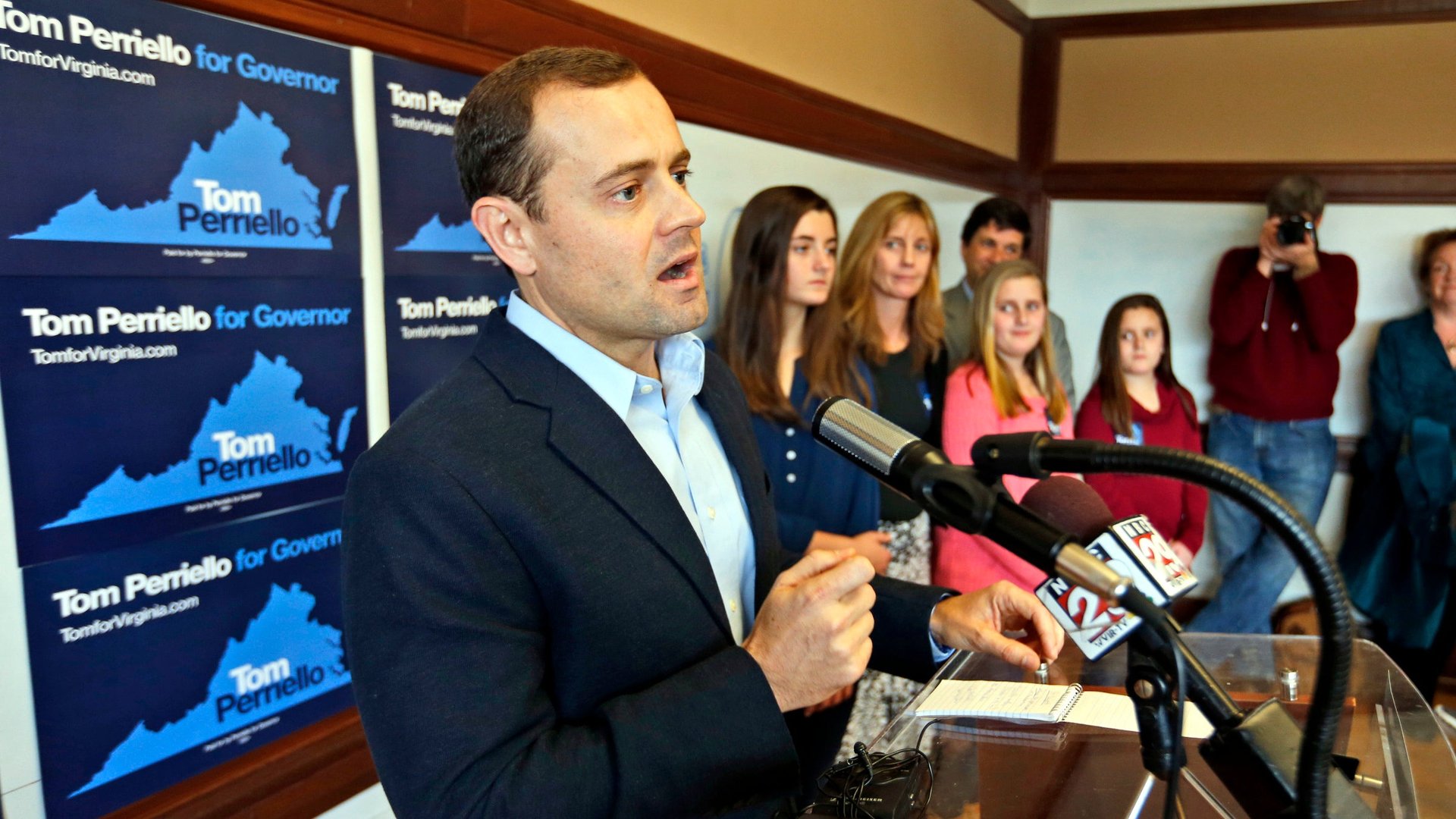For Democrats looking to beat Trump, the key may be fending off job-stealing robots
Tom Perriello is ready to talk about taxing robots.


Tom Perriello is ready to talk about taxing robots.
The diplomat and former congressman who is running for governor in Virginia says that voters in his state don’t want to hear facile assurances about the economy of the future—one where automation will lead to lost jobs. They want to hear how job losses will be slowed, and Periello likes what he read in Microsoft CEO Bill Gates’ recent interview with Quartz, discussing the need to tax investments in automation.
“When I ask voters where they think 85% of manufacturing jobs went, they say computers, every time, every room I’m in, without missing a beat,” Perriello told Quartz. “People can see a computer or an app doing something that their brother used to be paid to do just a couple years ago, and paid well.”
This reality, more than fears of immigrants or globalization, has attracted Perriello’s focus as he faces off against Lieutenant Governor, Ralph Northam in the Democratic primary. Perriello was a surprise entry into the race after many in the state’s political establishment had coalesced behind Northam. He’s running as much against president Donald Trump as he is against his rival, casting his campaign as a model for responding to the 2016 election.
The candidate has a first-hand understanding of the political trends that put Trump and the Republican majority in office. In 2008, Perriello was sent to Congress to represent the rural, conservative Virginia district where he grew up, only to be defeated in 2010 during the Tea Party backlash by fewer than 9,000 votes. Today, he says, “the intensity is so clearly on our side, in what is bit of a mirror image from 2009, when I was in Congress.”
Perriello doesn’t subscribe to the ideas that immigrants and foreigners are taking American jobs. After losing his seat in Congress, Perriello worked in at the US State Department, leading a review of American policy then acting as the US envoy to Africa’s Great Lakes Region. His foreign experience, he says, has taught him that jobs aren’t going overseas to poorer countries. “Most of those countries are struggling desperately in how they are going to create job growth going forward,” he says.
He also says that voters, even those that back Trump, largely agree with him on this question. But they don’t trust politicians who once downplayed the wrenching changes wrought by globalization.
“The same people who got globalization wrong 25 years ago are being equally rosy about automation today. Twenty five years ago, elites in both parties underestimated the scale of the costs and disruption of globalization,” Perriello says. “For the voters, if you aren’t willing to acknowledge those challenges in the past, they aren’t going to trust you when you give your read on the future.”
Perriello’s read could take the shape of Gates-style taxes on automation, used to fund career training for displaced workers. If that sounds similar to policies that attempted to respond to NAFTA by funneling money toward worker re-training, Perriello draws the following distinction: With free trade deals, politicians leaned into change, choosing to accelerate the process. This time, “automation is coming, whether we like it or not, [and] the question is whether we can proactively manage it.”
Democrats, including the Obama administration, have already raised concerns about the possibilities of automated driving and warehouse jobs. Even economists, typically bullish on the self-healing power of markets, are considering if this time is different—or rather, if we’ve taken the huge social changes of the industrial revolution for granted.
“They forget how painful those times were,” is how Perriello puts it. If easing that pain means making the transition more expensive for companies by raising the cost of capital investments, though, there is bound to be friction with global firms who are eager to adopt new technology. But Perriello isn’t impressed with the suggestion there there is a binary approach to automation, condemning it as “lazy thinking.”
Some of that comes back to his experience in troubled regions abroad, where he found analysts too focused on over-arching measures of economic growth and missed warning signs like high youth unemployment or inequality. “We continue to look too much just at macroeconomic growth, and miss some of these underlying trends of social mobility and economic security,” he says, a lesson that Democrats learned all too well last year.